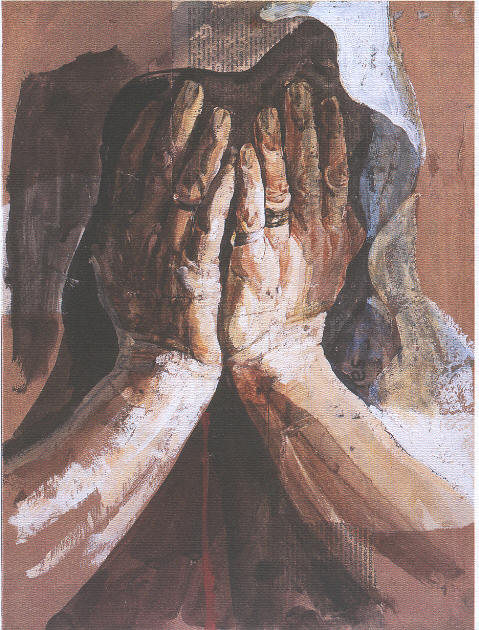 |
Genocide and denial
 The tenth anniversary of the July 1995 Srebrenica massacre has been the occasion for a great deal of reflection and debate on the subject of genocide and denial, as this issue of Bosnia Report illustrates. The planners, their political heirs and the intellectuals who egged them on or failed to condemn them, the populations who gave them electoral support or assented to their deadly project, are still eager to justify the crime with relativizing disclaimers. International representatives (and Bosnia’s wartime leaders too) pay public respects to the victims, while assiduously denying or playing down any co-responsibility on their own part. Those in the outside world who closed their eyes to the genocidal character of the wars in Croatia and Bosnia - when Ilok was being cleared of its population and Vukovar razed; when ‘ethnically cleansed’ para-states were being established round Knin, Pale and Banja Luka; as the black book of pillage, rape, dispossession and murder was being written at Bijeljina and Zvornik, Foča and Višegrad, Prijedor and Kozarac; while Biljana Plavšić was propagating her racist genetic theories and Dobrica Ćosić his belief that people of different faiths or ethnicity could not live together; and even after Srebrenica - have mostly just persisted in denial, despite the Hague tribunal’s verdict in the case against Radislav Krstić that genocide did indeed take place in Srebrenica. The tenth anniversary of the July 1995 Srebrenica massacre has been the occasion for a great deal of reflection and debate on the subject of genocide and denial, as this issue of Bosnia Report illustrates. The planners, their political heirs and the intellectuals who egged them on or failed to condemn them, the populations who gave them electoral support or assented to their deadly project, are still eager to justify the crime with relativizing disclaimers. International representatives (and Bosnia’s wartime leaders too) pay public respects to the victims, while assiduously denying or playing down any co-responsibility on their own part. Those in the outside world who closed their eyes to the genocidal character of the wars in Croatia and Bosnia - when Ilok was being cleared of its population and Vukovar razed; when ‘ethnically cleansed’ para-states were being established round Knin, Pale and Banja Luka; as the black book of pillage, rape, dispossession and murder was being written at Bijeljina and Zvornik, Foča and Višegrad, Prijedor and Kozarac; while Biljana Plavšić was propagating her racist genetic theories and Dobrica Ćosić his belief that people of different faiths or ethnicity could not live together; and even after Srebrenica - have mostly just persisted in denial, despite the Hague tribunal’s verdict in the case against Radislav Krstić that genocide did indeed take place in Srebrenica.
Srebrenica today is remembered more as a site of human criminality than as the terrible by-product of a wrong policy pursued by the West. For the most fateful denial is that which obscures Srebrenica’s role as the predestined - and foretold - culmination of a genocidal project inherent in the wars launched by Belgrade, a culmination made inevitable by Western collusion. All those international mediators and map-makers who aided implementation of the nauseating business of ‘ethnic’ separation, endorsing it at a series of international conferences and negotiations stretching from Lisbon to Dayton, and conspiring to deprive the Republic of Bosnia-Herzegovina (solemnly interred at Dayton) of its legitimate right to self-defence or international protection, bear a heavy responsibility for the outcome at Srebrenica. The fateful significance of this denial is that it points to a continuity in Western policy: from the insistence in 1992 that Bosnia’s president should negotiate with its would-be grave-digger, Radovan Karadžić , via the roles for Milošević and Tuđman at Dayton, to the persistent courting even today of politicians who cover for war criminals and celebrate the achievements of ‘heroes’ such as Milošević, Mladić and Karadžić.
The politicians’ dislike of admitting major policy errors has led to their cementation. Republika Srpska survives as a stark reminder of the West’s collusion with Serbia’s genocidal project: no amount of apologies for past failings can mitigate its culpability for keeping RS in existence. What, indeed, is the purpose of condemning genocide at Srebrenica, if the ethnic division of Bosnia-Herzegovina is upheld? There is a growing awareness, nevertheless, that the absence of a proper state structure in
B-H not only denies its population any hope of a normal life, but is also injurious to regional stability. Courage must be found to listen to democratic voices that may be far from commanding current majority support, and to base policies unambiguously on the idea that a European future for Bosnia-Herzegovina, Kosova, Montenegro and Serbia necessarily entails them becoming normal countries. That means fixed borders; full state prerogatives; democratic polities; and minority rights in line with general European norms, rather than offering territorial purchases for continued irredentist trouble-making.
|